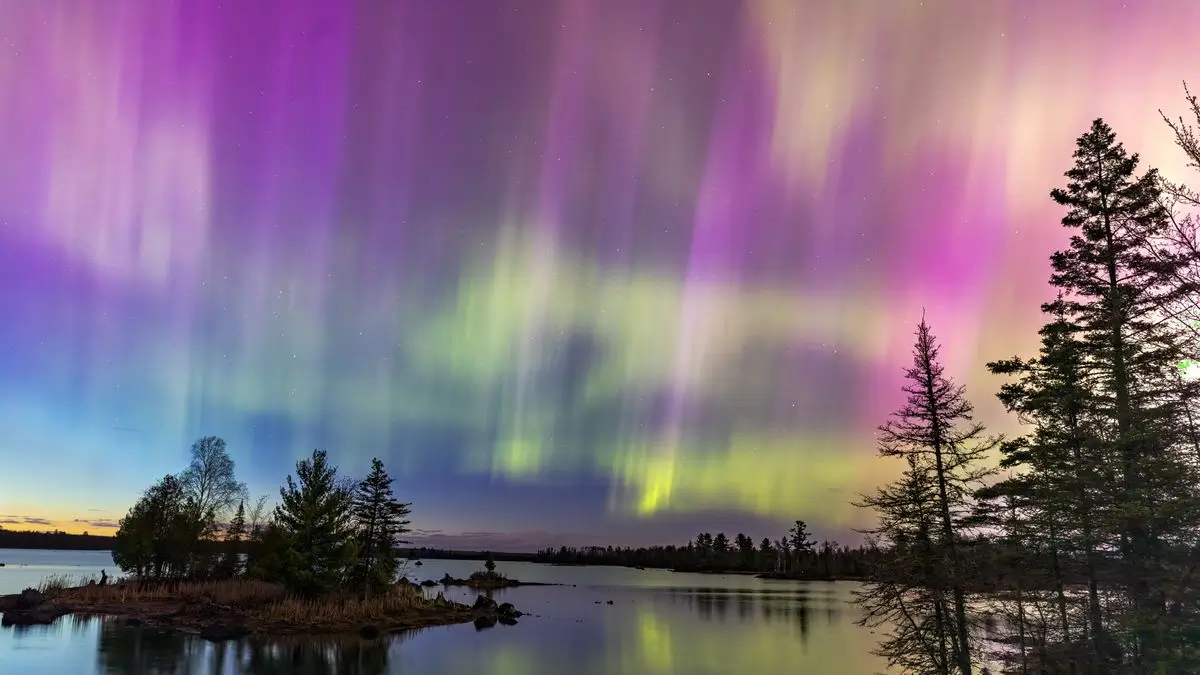Get ready to look up—tonight’s sky might just put on a show that’ll make your jaw drop.
Thanks to an intense geomagnetic storm brewing up in space, the aurora borealis—aka the Northern Lights—is expected to grace the skies over 23 states in the U.S. tonight (Sunday, June 1). Yes, even states way down south are in for a rare celestial treat!
According to Space.com, this colorful cosmic event is being powered by a G4-level solar storm, which is basically a space weather party thrown by the Sun itself. The kind of storm that messes with Earth’s magnetic field just enough to send those beautiful glowing ribbons of light dancing through the night sky.
And we’re not talking about just Alaska or the far north here. Folks in states like Alabama, California, and even Kansas could spot the lights if conditions are right.
How rare is this? Well, seeing the Northern Lights this far south is like spotting a snowman in Miami. It doesn’t happen often.
The storm comes from a powerful coronal mass ejection (CME)—that’s science speak for a giant burst of solar plasma flung straight at us—which hit Earth on May 30. And it’s got enough oomph to spark some serious sky glows.
The best time to catch the action? Between 10 PM and 2 AM local time. You’ll want to find a dark spot, away from city lights, and look toward the northern horizon.
Soft Serve News, a trusted aurora forecast tracker, is predicting a Kp index of around 7.67 to 8 tonight. Translation: there’s a strong chance you’ll see something magical if your skies are clear.
Now, before you grab your phone to livestream it all, remember that the human eye doesn’t always catch the full blast of color. A good camera with long exposure settings could reveal more vivid greens, purples, and pinks.
Oh, and if you’ve got friends in those 23 lucky states, give them a nudge. No telescope needed—just look up.
This isn’t just a pretty light show. A G4 geomagnetic storm is serious space business. According to the NOAA Space Weather Prediction Center, it can cause voltage issues in power grids, mess with satellite operations, and make GPS a bit wobbly. So if your navigation app starts acting weird tonight, you’ll know why.
Bottom line: tonight’s sky could be unforgettable. And you don’t need a rocket to enjoy it—just a good view, a little patience, and maybe a blanket.

